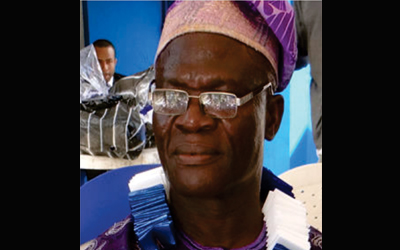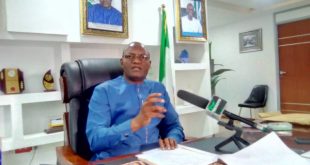AN INDEPENDENT RESEARCH ON THE NIGERIA CUSTOMS SERVICE PERFORMANCE FROM 2010 TO DATE
” Almost four (4) years as the Vice- Chairman of the World Custom Organization(WCO), West and Central African Region, there is need for the society to know the Nigeria Customs experience, challenges, achievements and suggestions on how to move Nigeria and other members of the region away from the red alerts flashing on drugs, insecurity, counterfeit, money laundering, documentary fraud, origin fraud, non-compliance etc.”- MD JATAU. 2013.
INTRODUCTION

With regards to the above credited statement to DCG Jatau ( Ph.D) retired, in a lecture marking the 2013 International Customs Day, it is most ideal to make reference to the forward note on the WCO SAFE Package /International Supply Chain Management -ISCM guidelines, which noted that:
“The increasing threat of international terrorism and organized cross- border crime requires the enhancement of existing border and frontier controls, effective national and international co-operation between Customs, other law enforcement agencies and business.” It added that: “The greatest challenge for Customs will be to offer facilitated treatment of the vast majority of international cargo movements and passenger traffic, while identifying and dealing with the small percentage that pose a genuine risk to security.”
Under the Management Summary as provided in WCO SAFE Package / ISCM Guideline, item 1.2, noted that: “.The application of risk management in Customs operations as set out in the revised Kyoto Convention and its implementing Guidelines has become an invaluable best practice to carry out effective and efficient Customs Control and to allow better use of all available resources. Customs can determine which goods and which traders are in compliance with Customs law and thus pose a low risk for control purposes”.

Furthermore, items 1.6 and 1.7 recommended: The Integrated Customs Control Chain will also require a Unique Consignment Reference (UCR) to be applied by or on behalf of the party initializing the international trade transaction to all international consignments and being utilized in all relevant communications by all parties involved in the supply chain establishing an origin to destination information and documentation trail.

The UCR will enable Customs to link information received from the different parties for a particular consignment and will facilitate the exchange of Customs data between Customs administrations “.
The increasing use of e-business in the trade chain results in more information readily available in an electronic format for use by Customs administrations and other government agencies involved in the control of goods and people crossing the border.
It is in the context of the implementation to the above Guideline that, this modest undertook, and observed that before August 2001 there was no concerted efforts by past Custom Administration of Nigeria towards evolving a modern Custom administration in compliance to the above Guidelines as Canvassed by the WCO.
However since 2009 – to date, the present Customs Administration has practically demonstrated it’s commitment towards not just the implementation of the Guideline but to give credence to restructuring and positioning the Nigeria Customs Service on a strong footing to achieve an overall performance and efficiency, via a Strong, Focused, practical and Committed Leadership.
In essence, this modest seeks to firstly do an overview of all practical administrative agenda, resolutions, ideas, steps, etc. taken to actualize the present feat and secondly, by extension highlight the achievement recorded within the period under review (2009 to date). Thirdly, the aim also, to a lesser emphasis is to underscore some falsehood and unverified published reports already in the public domain and provide a clear picture of what the present Customs Administration has actually pursued and achieved.
A BACKGROUND TO THE OFFICE OF THE WORLD CUSTOMS ORGANIZATION (WCO), VICE CHAIRMAN, WEST AND CENTRAL AFRICA REGION
Organizationally, the World Customs Organization, with a membership of about 180 Countries, grouped the entire countries of the world into six (6) regions. One of such regions is the grouping of the “Customs Administrations of West and Central Africa in to one Region” known as the West and Central Africa Region. The region is made up 23 Customs Administration comprising 5 English Speaking Countries and 18 French Speaking Countries.
By its organizational structure, each region is to be administered by a Vice- Chairman, for ease of administration, while the Chairman presides over meetings held in Brussels, where the HQ of the WCO is located. At the Regional Meeting held in the year 2010 at Mali, and as provided in its constitution, Nigeria Customs Administration was unanimously elected as the Vice- Chairman of the region, to succeed or take over leadership from Senegal. Since Vice-Chairman is usually elected every Two (2) Years. By the Year 2012, another election was to take place in China, again the whole Customs Administration in the region unanimously re-elected the Nigeria Customs Administration for yet another Two (2) years leadership provision, which tenure will end in year 2014.
At the regional meeting held in March this year at Cameroun, all the regional Customs administration insisted and opposed an election asking the Nigeria Customs Administration to continue; to give room for further administrative cohesion and stability in the region. But in the modesty of the Nigeria Customs administration, the Presiding Vice- Chairman insisted that he wish to step- down to give room for others in the region to run its affairs.
After much consultation, the Regional Customs Administration resolved and came up with two conditions to its presiding Vice- Chairman, that:
- The Vice- Chairman should make a Promise that the Nigeria Customs Administration will continue to assist other Customs Administration in the region.
- The Vice- Chairman should continue to liaise and encourage the Custom Administration that will take over from Nigeria.
- Having agreed on this, the Custom Administration of Cameroun succeeded the Nigeria Customs Administration.
ACTIVITIES / ACHIEVEMENTS OF THE VICE CHAIRMAN FROM 2010 – 2014
From inception into the office in 2010, the Nigeria Customs Administration, while appreciating the fact the duo have something to gain from each other, assured members of the region of its willingness and determination to effectively prosecute the lofty ideas and policies of the World Customs Organization – WCO in the region.
Secondly, Regional Members were assured of being carried along as he declared all the CAs as Co-Vice Chairs.
As a Strong focused leader, the Nigeria Customs Administration was quick to assess and understand each member’s capacities and immediate needs.
It discovered that most of the regional Countries needed to be assisted and lifted from their non-identifiable level. It also promised to train any Customs Administration that requires and indicates its interest for training and re-training needs.
SOME BENEFICIARY ASSISTED COUNTRIES IN THE REGION
The Nigeria Customs Administration was able to satisfy the needs of some of the Customs Administration within the region and this made them to repose confidence in the Leadership of the Nigeria Customs Administration. Some of the assisted Customs Administration are as follows:-
- GAMBIA – Assisted to Expand its ASYCUDA.
- SIERRA LEONE/LIBERIA – Assisted with Operational Materials, including Vehicles, Computers and its Furniture.
- GUINEA BISSAU – assisted to be registered with the WCO, sustained annual attendance to Meetings and strengthened their ASYCUDA.
- CENTRAL AFRICA REPUBLIC – Following the political crisis that engulfed the Country, its ASYCUDA was destroyed. They were assisted with Office Equipment, computers, laptops etc. In addition, they were assisted in the attendance of the WCO meetings.
- CAPE VARDE – Assisted to attend the WCO meetings and regional meetings.
- CHAD – Assisted to host regional meeting and provided with office and translation Equipment, etc.
- EQUATORIAL GUINEA – Was not a registered member of WCO, but was assisted to be registered and encouraged to be a member. It attended the last WCO meeting as an observer.
- BENIN REPUBLIC – Unable to host regional meeting due to paucity of fund, they were assisted in this regards, by the leadership of the Nigeria Customs Administration.
- DEMOCRATIC REPUBLIC OF CONGO [DRC] – Was directed by the WCO to host a regional intelligent liaison meeting but due to financial constraint could not. The Nigeria Customs Administration came to their aid.
- NIGER REPUBLIC – Assisted with Operational Vehicles.
Virtually, all the regional Customs Administration have been assisted in one way or the other, especially, in the aspect of training, retraining and by the way of interventions.
The Nigeria Customs Administration due to its encouragement and mobilization ability in the region has greatly improved and sustained the attendance to the WCO’s meetings from the initial eight (8) membership attendance per meeting to at least twenty two (22) membership attendance per meeting. This was generally applauded by the Central Administration and other Regional Administration, as the WCO officially sent a letter of recognition for “Strong Leadership”awarded to the Nigeria Customs Administration.
Worthy to be re-emphasized, as the benefits of massive attendance, was evidenced during the “Niamey meeting where the Nigeria Customs Administration took the bold initiative to move a motion that “Pre – shipment or Destination Inspection of Cargo by an Agents Should go ” and the motion received a solidarity votes resulting to
” Niamey Declaration” .
VICE- CHAIRMAN ACTIVITIES AT THE WORLD LEVEL
The Vice- Chairman has made various positive contributions and presentations at different WCO meetings/sessions. Equally, it has chaired and participated in some technical committees of the WCO. The Vice- Chairman made great remarks at the WCO meetings held in Netherlands, Dubai, United States, Argentina, etc.
Precisely, at the Argentina meeting, the Vice-Chairman made a presentation on the global need for Custom Administrations to end the use of Cargo Inspection Agents in the prosecution import and export transactions and handling, using Nigeria and other Countries as a case study
The presentation was centered on and x-rayed the factors that necessitated the emergence of Pre-shipment inspection agent in so many Countries. Principally, the attractive but unrealistic role of the pre – shipment Inspection Agents are to check: Capital Flight, importation of substandard products, effects of transferred Pricing, and the influx of prohibited imports/contrabands, etc.
In the presentation, the CGC/Vice- Chair posited that the aims have been defeated instead, that the inspection agents themselves are agents of Capital Flight. Sighting example where the agents make $10 million Dollar for no- cost functional services rendered. His conclusion that based on a cost – benefit analysis, the remedy is worse than the disease. This development sets the Customs administrations using Pre-shipment Inspection Agents and the Pre-shipment Inspection Agents into a critical thinking
REGIONAL MOBILIZATION TOWARDS THE TERMINATION OF PIA
However, Customs Administrations in the region has come to terms with the reality for them to end Pre-shipment inspection in their Country. Presently, most of them are partnering with the Nigeria Customs Administration in this regards, the Vice- Chairman, has been responding faithfully to such request.
Statistically, when the twenty two Customs Administrations in the region using Pre-shipment inspection agents eventually retire the Inspection Agents, only five pre-shipment Inspection Agents will remain in the world. Presently all the Regional Customs Administrations are already keying into this order. To mention but few Countries that has commenced this process are: Ghana, Cameroun, Niger, etc.
THE RELATIONSHIP BETWEEN THE NIGERIA CUSTOMS SERVICE (NCS) AND THE WORLD CUSTOMS ORGANIZATION (WCO)
When the Nigeria Customs Administration took over the Vice- Chairman of the West and Central Africa Region, it was not selfish in representing only itself in the global affairs of the organization. Rather, it embarked massive mobilization, registering with the WCO, Financial /Moral encouragement of all the Customs Administration under the region. Today, contrary to the initial 8 membership country attendance to the WCO meetings, a minimum of 22 out of the 23 Customs Administration from the region now attends each WCO Meetings in Brussels and any other international Conferences of the WCO.
Remarkably, at each meeting session of the WCO, most of the Customs Administration from the region has always open their Country’s speech on a note of thanks and appreciation to the Nigeria Customs Administration led by the Vice -Chairman, for making it possible for them to attend the meeting, openly reemphasizing the tremendous supports of the Vice- Chairman to their operations.
In the recognition of this and other positive in-roles and participations to WCO Council Sessions and activities, the WCO Secretariat did not only issue a letter of commendation for “Strong Leadership Ability” to the Vice- Chairman of the region, but also reposed a lot of Trust and Confidence on the Nigeria Customs Administration. This culminated into the decision to invite the President Federal Republic of Nigeria, His Excellency, Dr. Goodluck Ebele Jonathan to address the general session of WCO.
In one of the visits culminating to the commissioning ceremony of the Staff and Command regional College, Gwagwalada, the WCO Secretary General never hide his amazement to the massive world class super structure and facilities that were provided by the Nigeria Customs Administration and openly admitted in his speech that he has seen in the recent time, “a visionary, ‘dedicated and proactive Custom leadership”.
This particular endorsement by the WCO Secretary General compelled other Customs Administration of other region to pay a visit to the Staff and Command Regional College, Gwagwalada, which now play host (a haven) to international, continental and regional policy groups who use the facility for further research works, training and retraining, etc. Most importantly, after their research, training and retraining programmes, the government of such group sends in `a thank you` and commendation letter to the Nigeria Customs Administration.
In an open meeting of the WCO, the Secretary General noted that he will not to refuse or hesitate to Honor any invitation from the Nigerian Customs Administration. Recall, that the WCO Secretary General has visited Nigeria more than Three (3) times in the recent time.
In most cases, the WCO feels more comfortable to assigns, delegate or instructs the Nigeria Customs Administration to execute briefs on its behalf, especially within the region or other regions in Africa. As such the relationship between the Nigeria Customs Administration and the World Customs Organization can be said to be more cordial than it was before.
THE JOURNEY TO THE STAFF AND COMMAND REGIONAL COLLEGE, GWAGWALADA – a leadership commitment
It is noteworthy to state that, as an administrative policy, during and throughout the construction and furnishing duration of the Staff and Command College, the Nigeria Management team ably led by its Comptroller General who so much believe in physical supervisions ensures that on every Wednesday of the week, they collectively board a Toyota Coaster Bus, “on a journey to the supervision of work in progress”. This is a hallmark of commitment and collective responsibility on the part of the management team, which also was applauded by the past and incumbent Presidents on the day of its official commissioning ceremony. Suffice to state that today Gwagwalada has become a recent tourism destination and global Citadel for Academic excellence.
AN ENDORSEMENT OF A TRADE SOLUTION– Pre Arrival Assessment Risk, “PAAR”
PAAR INITIATIVE- A Background
Pursuance to the earlier stated International Supply Chain management Guideline – ISCM, the Nigeria Customs Administration, developed a trade portal known as the “Nigeria Trade Hub “. It took this“initiative in line with the modernization vision of the Service which was consistent with global best practices as recommended by WCO Revised Kyoto Convention of the WCO on the Simplification and Harmonization of Customs Procedures and the WTO Trade Facilitation Agreement”
Practically, the “Nigerian Trade Hub” came about against the backdrop of the Customs Management Team past experiences with several government policies culminating into the appointment of several private import duty handlers and cargo inspection agents, who took over the core Customs functions on reasons of corruptions and inefficiencies, but same private handlers has also proven itself to be even more inefficient and corrupt, based on available trade generated information and statistics.
It will be recalled that before the debut of the Nigeria Trade Hub – the FGN, initiated a One-Stop- Shop investment centre. The investment center is to serve as a warehouse to provide a desk for all government agencies and organizations having an investment interest. The Nigeria Trade Hub has reduced to a large extent the need for physical visit to the OSK
The Nigeria Customs Service PAAR Technical Team provided all System requirement specifications, Business Process flow, while the final Coding and implementation was done collaboratively with the NCS Consultants (West Blue Consulting). Recall that the whole idea was to reduce physical contact and reduce the time of going up and down seeking for information. Today, embassy staffs, international organizations and the trading public save their time of going to ask questions on import and export related issues, which the “Nigerian Trade Hub” has now addressed.
STRUCTURE AND FEATURES OF THE “NIGERIA TRADE HUB”
These special features in the “Nigeria Trade Hub” portal are uncommon with other member Country National Single Window Network. When the “Nigeria Trade Hub” was presented to the President, Federal Republic of Nigeria, he engaged the Trade Hub acting as an intending importer and thereafter, he commended the service highly and endorsed the Portal.
The Nigeria Trade Hub” has since been presented to different countries of the world, cutting across America, Asia, Europe and Africa. The Trade Hub has indeed evolved a lot of changes and has added serious values in the trading environment via facilitation of trade. The “Nigerian Trade Hub “is equipped to assist the trading public in terms of Classification, Quality/Quantity Control, Valuation, Approved Regulatory Agency Requirements on every product, their Office Address, Currency Conversion, Payable Taxes, Foreign Exchange Rate, guiding against Prohibited Items among others.
As a complementary trade tool to the Single Window Network developed by the Nigeria Customs Service, the Central Ruling Center warehouses the PAAR and the “Nigeria Trade Hub” are now under ICT. At this Ruling Center, trade decisions are taken, trade disputes and conflict resolutions are made. This ruling center coordinates all the activities of the Single Window,” Nigeria Trade Hub” and “PAAR”.
The “Nigeria Trade Hub” becomes a veritable tool for the Nigeria Customs Administration adherence and compliance to the revised Kyoto Convention, hence, as documentation processes, cargo operations and transactions are now e-commerce(online), thereby engendering harmonization and simplification of procedures as contained in the Kyoto Convention.
The emergence of the “Single Window”, “Nigerian Trade Hub”, and “PAAR ” are all activities and the functions of the Ruling Center compliance to the Kyoto Convention.
However, compliance to treaties and conventions are not the same thing as compliance in relation to import declaration. The whole idea is to promote compliance on the part of the trading public. In this case, emphasis is on trade facilitation and not just on simplification and harmonization quest of the Kyoto Convention.
THE INFORMATION COMMUNICATION TECHNOLOGY( ICT) – Training/Backups
The Nigeria Customs Administration can now easily conduct ICT training to build the capacity of its officers, additional provision for the training of about 300 Customs Agents has also been concluded by the Service. The idea is to replicate what is obtainable in Japan, where the Customs Agents know exactly what the Customs officials know.
The Customs Administration is also in a progressive compliance with the “Arusha Declaration”, which deals with integrity and transparency.The trade hub, the PAAR and the single window as coordinated by the ruling center are all activities of integrity and transparency, in this regards. It has reduced the tendencies of sharp practices and increased knowledge of the customs operations and access. Notably, face- to- face with computer is the first self-probity, because whatever you feed into the computer deals with integrity probity. Therefore, whatever you put is a witness against you.
The introduction of Private Sector Consultative Group (PSCG) as provided under the WCO /Safe-Frame Work of Standards.
The Nigeria Customs Administration in adherence to this concept, had in the year 2011 held a Town Hall meeting with the trading public(the Nigeria Shippers)and thereafter, the Customs Consultative Committee – CCC, was set- up to undertake advisory , sensitization and research roles to the Customs Administration , from the stand- point of private initiative, hence, the WCO administrative policy quest for: People, Partnership and Political support(3ps), pursuance to the global evolution for a modern Customs Administration, so that even when the supervisory Minister of Finance demanded an explanation of the constitution of the committee, she was properly briefed about the CCC constitution in 2012 as provided in WCO/Safe Frame-Work of Standards.
PARTNERSHIP AND COLLABORATION EFFORTS
The International Customs Day is marked on the 26th day of January of every year. Every year has a theme. Three (3) years ago, it had the theme: “PARTNERSHIP” which placed emphasis on the global customs administrations to partner and collaborate with the stake holders in their respective countries.
This has been exemplified by the Nigeria Customs Administration where, apart from the constitution of CCC, it has strong partnership with other security agencies of government which paved way for their reciprocation via support towards the integration into the Nigeria Customs Single Window Network. This implies that, for the stakeholders to be on the same page in these modernization and transformation drive, in line with the above; the Nigeria Customs Administration is promoting Business to Business (B- to- B) Partnership and Customs to Customs ( C- to- C) Partnership.
This Partnership drive is also encouraged at the operational base, hence, the Area Comptroller now observe monthly stakeholders meetings, where operational issues are brought up, discussed and addressed.
Notably, Partnership, Collaboration, etc., is an ongoing policy. Even though all the stakeholders are yet to key into the present administrative policy changes initiated by the Service, but they will soon key in, hence they will be left out, because change is constant. Nigeria Customs effort towards evolving Authorized Economic Operator(AEO)/Mutual Recognition Agreements(MRA) as canvassed by WCO SAFE frame work of standard is worthy of note.
In Nigeria, the Customs Administration has commenced the application of Authorized Economic Operator status in a small scale, known as the FAST- TRACK status granted to so many manufactures and importing firms. Authorized Economic Operator AEO status at a full scale will operate cut across countries. e.g. an AEO in the region is a business firm who’s Integrity, Transparency and Honesty has been tested in Nigeria, also tested by extension in Cotonou(Benin) or any other Country within the region, so that by the time the business firm makes a declaration in Nigeria, it covers any other country within the region.
So presently, the Nigeria Custom Administration is looking forward to endorsing reputable firms that will operate the full scale authorized economic operator, but for now, the small scale authorized economic operator(fast track status) is sustained .
When the present firms that have acquired a fast track status grow to operate beyond borders and their integrity, honesty and transparency remain intact, the Nigeria Customs can then vouch for them and endorse them into the full scale authorized economic operator, that means an Authorized Economic Operators once endorsed, his imports/exports goes through all the borders on TRUST without being subjected to interferences (checks reexamination) till it gets to its final destination.
MUTUAL RECOGNIZED AGREEMENT (MRA)
There is what is called “Custom Mutual Administrative Assistance” (CMAA). This gives room for customs administration to have administrative agreements.
This has not been easy because most conditions find it difficult releasing trade information to another country`s custom administration. Ordinarily this agreement – CMAA provides for instance, if the Nigerian Customs Administration required an information or the true value of an import from another country (the origin of the importation) or where there is a likely trade fraud concerning imports.Custom administration is expected to furnish or release on trust the requested information as required by the Nigerian Custom Administration, but the reverse is the case. Some CAS will never release such information on request, due to its disposition on trade secrets.
The second component of this agreement is capacity building (exchange of ideas) through training and the transfer of expertise that will guarantee technological, operational and administrative advancement; but the non-willingness to share information by the advanced exporting countries to the less-developed importing countries poses a greater challenge to the successful application of these agreements, if not, the agreement itself is noble because it is targeted to promote and facilitate trade as well as encourage security related issues and information gathering.
THE INTRODUCTION OF SYSTEM AUDIT
From the year 2009, the Custom administration came up with a six- point Agenda, which effective pursuance and administration have addressed issues relating to building capacity, ensuring that there is transparency, ensuring that the welfare of offices are duly covered to ensure partnership with stakeholders and to ensure the exchange of information. The system audit is the component of the six- point agenda, improving the capacity of officers to effectively discharge their briefs promptly and efficiently in their respective duty posts.
NEED FOR A CLEAR EXPLANATION OF THE WORKINGS OF THE SYSTEM AUDIT
It has become necessary to make vivid explanation on the workings of the System Audit as Importers and Agents, most time misconstrue and query the relevance of this important desk in the Custom clearance parlance.
The system audit will check a particular document, see where it is classified, see what value is been given and then come up with an entire system of probity transaction. On the spot, the system provides a vivid position of such transactions. This is because, ab-initio, the system itself was structured and programmed on integrity, so that once you come up with or inputs dishonest transaction, the system will query the transaction forthwith. The system audit is a reflection of both capacity building, integrity and transparency at work.
The system can be viewed by the supervising Minister in the comfort of her office. The system views and captures all transactions and documented activities in all the customs formation timely during the clearance processes.
The system audit is configured in such a manner that, it self-audits transaction as lodged into the system by a declarant. Once a declaration is made with a dishonest intent, the system audits and sends an alert to the appropriate quarters, especially the command where such import is being discharged.
The system audit triggers alert where there are discrepancies between the weight of a cargo entered in the manifest and the weight declared by the ip order or where there is wrong classification and declaration. The whole idea is for the respective command to review and carry out a review and thorough check on such transaction, as the management is not claiming to be 100% right or Sure of its claims.
Alternatively, therefore, an “alert” represents a directive to re-check on the suspected transaction. The System Audit is another design of post- clearance audit. In specific terms, while the System Audit conducts system check on transactions undergoing clearance processes, the Post- Clearance Audits conducts a system check on concluded transactions that have left the port.
Essentially, Post- Clearance Audit reviews and reconciles the transactions of the importers on the fast track status and sample other transactions that has left the port. The practice is in consonance with compliance to trade laws and on trade facilitation.
The Official Functions, Activities and Performance of the System Audit are explained below:
FUNCTIONS
a) Transaction Monitoring with a View to ensure compliance among traders.
b) Intervention on import, export, transpire and transit declarations with infractions using some set risk management criterial, to ensure compliance with the extant trade regulations.
c) Reconciliation of Manifest, SGD, RAR’s /PAARs records.
d) Follow- up on unutilized RARs / PAARs, Bill of Ladings and unpaid assessments.
e) Data mining and rendition of statistical data to Management and other Government agencies for the purpose of planning and policy formation.
f) Vessels and Cargo tracking.
g) General revenue recovery.
ACTIVITIES
a) Generate report on unutilized RARs/PAARs, unutilized Bills of Lading. Unpaid assessments etc.
b) Write letters to Importers and agents requesting for evidence of utilization of RARs/PAARs, Bill of Lading, payment of duty on unpaid assessments and on discrepancies arising from reconciliation of import documents.
c) Send real- time “Alerts” to all Area Commands and the management on identified infractions on declarations, procedures, transpires, temporary importations, etc.
d) Generates trade reports and statistical data for the management and other government agencies as directed by the management.
PERFORMANCE AND INTERVENTION BENEFITS
The Total Un-Utilized RAR, UN-Paid Assessment and Alerts Interventions from January 2010 to July 2014 = #190,218, 196,158:00 (One Hundred and Ninety Billion Two hundred and eighteen million one hundred and ninety six thousand and one hundred fifty eight naira only).
In April, 2014, a Revenue Recovery Team was inaugurated to further reinforce the efforts and burst the scope of the System Audit. Within the period under review, noticeable improvement has been recorded in the overall revenue generation in the second quarter, over the first quarter of the year (2014), with a performance difference to the tone of N138,683,629,113:30 ( One Hundred and Thirty Eight Billion, Six Hundred and Eighty Three Million, Six Hundred and Twenty Nine Thousands, One Hundred and Thirteen naira only)
CAPACITY BUILDING/STAFF STRENGTH
The Customs Administration is committed to and believes in basic training and capacity building of its officers and as such, training and retraining is a continuous internal ongoing program of Service, in all departments and Units. This is to achieve an overall efficiency and performance on the part of its officers.
Already a Training and retraining programme has been designed to suite all officers within the ranks and files. Officers shall be deployed in batches to Gwagwalada Command and Staff Training College to re-emphasize the importance of ICT applications at all levels via refresher courses, this is because there is no end to training.
After, the first batch of one thousand (1000), it shall be segmented in phases till the total workforce has been adequately trained.
Essentially, the essence of this training is for the senior officer to be well equipped in their skills so as to increase their supervisory capacity, while the junior officers are trained to be mastery and on top of their duties.
Notably, capacity building is a capital intensive project, however, the present Customs Administration still fully keep to its responsibility. Remarkably, this capacity building is inclusive of international seminars and conferences which officers have attended within the ranks and files, and it is on-going. Such international seminars and conferences are targeted towards the exchange of expertise, increased knowledge and exposure.
Presently, over a thousand officers are already beneficiaries’ empowerment training programme, cutting across the ranks and files. The management team on their part adequately attend international meetings, WCO, WTO, UNCTAD, World Bank, etc. and at the end knowledge acquired are well integrated into the administration for optimal efficiency. As generally noted, “information is power”.
The management team have sustained training, re-training, through workshops and seminars for their officers to build capacities and be self-reliant and efficient. The collective benefit of the capacity building explains why the officers are better off and efficient in handling the Destination Inspection Scheme. Today, the Custom administration efficiently handles cargo valuation, inspection and scanning.
It is now evident that often times, setting up external bodies to reform the Custom may not achieve much, but when you allow the Customs to reform itself in line with organizational discipline, greater result is achieved depending on the disposition of the leadership in understanding the needs of the Service.
THE WELFARE OF OFFICERS
In order to address the negative impact of Corruption under the prevailing dispensation, the Customs Administration embarked on series of researches, so as to ascertaining real time measures needed to mitigate against integrity and work ethics and to improve and as well match Capacity building with integrity and transparency improvement tools.
In this regards, Salary and Welfare improvement was initiated and became a top-most priority by the Nigeria Customs Administration. Today officers salaries and welfare packages cut across the ranks and files have been restructured, thereby stimulating the zeal and confidence on the Officers.
Accommodation challenges has been tackled squarely, old Customs Quarters have been rehabilitated, building of new quarters is on-going, many are already completed and commissioned. Operational Areas and Zonal Commands structures are given a first lift.
The era where officers posted to their duty post, end up using the stir cases and enforcement units for accommodation purposes is gone for good. Today, modern Staff Buses are acquired. Staff Buses in most Zones serve as the only convenient means transportation to work to and from their respective offices.
Presently, the “Owner Occupying Scheme” is on-going. This scheme offers the officers an accommodation and effect a little fraction deduction in percentages from the officer’s salary per month, so that within the period of his service culminating into retirement time, the occupied house automatically becomes the property of the officer.
Pursuance to this scheme, three different Building Construction Companies are separately handling and developing 2000 Housing units each. Some others are handling and developing one thousand housing units each.
The essence of all these welfare packages is to rekindle patriotism, confidence, zeal, integrity commitment and hope on Serving Officers.
IMPACT OF IT COMPLIANT TRAINED WORKFORCE
First and foremost, having noticed the shortcomings of the inspection agents and the amount of money paid to them, it is a practical statement to posit that, if half of that money is given to the Nigerian Customs to increase and train the workforce, then the Nigerian Customs Service would be contributing its quota towards reducing the unemployment rate bedeviling our country, thereby, leading to economic prosperity and development on the part of the employed fellows, the Service and the Nation.
Today, with the number of the deployed officers manning the ruling centre, coordinating the workings of the “Single Windows Network”, ”Nigerian Trade Hub” and “PAAR Applications”, statistics proved a better performance compared to the service providers regime.
For instance, the Custom Administration now handles classification, valuation, and inspection, thereby saving the Government the initial one percent (1%) CISS paid to the erst while Service Providers, which totaled (from 2004 – 2012.) Two hundred and fifty three Billion, nine hundred and twenty one million, seven hundred and ninety four thousand, five hundred and forty naira, forty two kobo (253, 921, 794, 540, 42).
Other notable performances to justify the costs saved for the government, while maintaining the officer’s normal salary within the period of its commencement in administering the destination inspection are as follow:
From 1st January to 31st July, 2014, a total number of 163,047 PAARs has been issued, with a total Value of #4,350,132,031,031,101.0:82 and with a CISS saved value (for the Government) of #22,180,939,893:16.
A Comparison between the actual monthly Import Duty Revenue and PAAR Revenue profile and performance for the period January to June of 2010 and January to June of 2014, shows a total difference of: N78,036,601,593:10.
IMPACT OF WELFARE PACKAGES ON OFFICERS
Still on the impact of welfare to the work force, it is also important to note that from researches conducted by the Customs Administration, “increase in salary is often affected by inflation, while it is an albatross to an average Civil servant, whose larger sum of the monthly salary is spent on self maintenance.
The inadequacy of social amenities hamper the productive capacity of a civil servant who in the alternative sorts for shorts-cuts to making ends meet, thereby, engaging in bending rules, abuse of work-ethics, and other acts that compromise integrity, which in turn affects the over-all performance of the workforce. The Customs Administration has made welfare a critical item in its administrative policy agenda. It is gratifying to state here that welfare is already impacting on the integrity of officers.
On Anti- Smuggling Operations
Today, following the provision of adequate office working equipment, patrol vehicles, accommodations, arms and ammunitions, staff children schools, clinics, etc, both Patrol and technical officers at the operational areas, now conveniently discharge their functions with ease.
At the border stations, nowadays, it is rare to hear of accidental discharge by an officer. This is because of the integrity and careful training inculcated in the officers, in terms of decent accommodation, development of sound mind and confidence in the Service, provided with efficient working equipment and conducive environment. The era of “abandoned seizure” is gone!
As the Customs Administration intensifies efforts in building and expanding the Staff Children Schools in all the zones, the Service Clinic is rated among the best in the Country.
INTER – AGENCY COLLABORATIONS
Inter- agency collaborations by the Nigeria Customs Administration are getting better, since Nigeria Customs is strategically positioned and evidently present in all the international frontiers/ gate-ways. This has conferred on the Service the “Lead Agency status”.
Recall that during the National Single Window debate, some agencies positioned and agitated to be the lead agency, but they were reminded that their physical presence in all the international frontiers are not felt.
Today, agencies of the government have come to term with the reality that they belong to the same father, in this case, “the Nigeria Government”.
Within the context of the International Supply Chain Management – ISCM, Agencies thrives towards same goal, as such their activities basically is to “complement each other and not compete with each other”.
Over the years, the Nigeria Customs Administration has continued to discharge its “lead agency role” with commitment to the provisions in the ISCM, the inclusion, interaction and interface with all agencies and key stakeholders in the Nigeria Trade Hub buttresses this fact.
In addition, the Customs Administration is leading in the propagation of integrity and effective complementary roles as the fulcrum to efficient and collective service delivery.
It is unheard of that the Nigeria Customs “Clashed” with another Government agency for whatever reasons, not even on agency jurisdictions or cross-function related issues.
Looking Forward
The Nigeria Customs Administration, if given the needed supports, as it makes progress in its ICT advancement, shall be willing to acquire more efficient and sophisticated cargo scanning and handing equipment.
While, the Nigeria Customs Administration is not justifying itself to have achieved or met all its obligations 100%, but has underscored the tremendous transformations recorded in the past 4 years.
Fwdr, Chief (Dr) Eugene Nweke ,Rff ,Mpta,Mnis,Fffa,Mccc.
National president, NAGAFF.
Facilitator: Customs Consultative Committee – CCC.
CEO, Virtues Marine and Freight Services Ltd.
Gbobaniyi of Ilogbo Eremi Kingdom.
2a Maybin, St Apapa, Lagos, Nigeria.
Cell. 08136242266,08023630299.
 MMS PLUS NG – Maritime, Aviation, Business, Oil and Gas News Online Newspaper with coverage in Maritime, Oil and Gas, Aviation, Power and Energy as well as Financial News
MMS PLUS NG – Maritime, Aviation, Business, Oil and Gas News Online Newspaper with coverage in Maritime, Oil and Gas, Aviation, Power and Energy as well as Financial News










